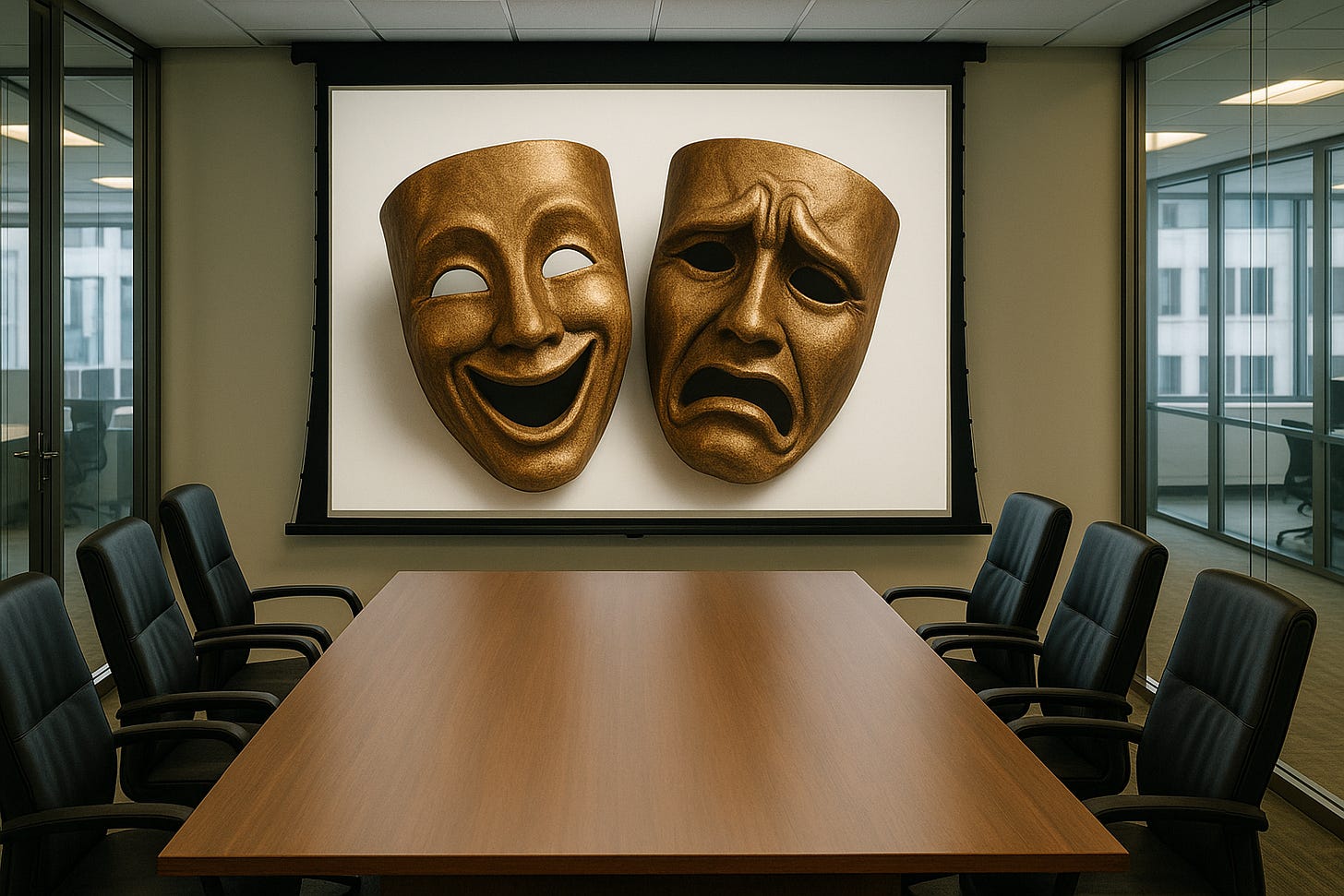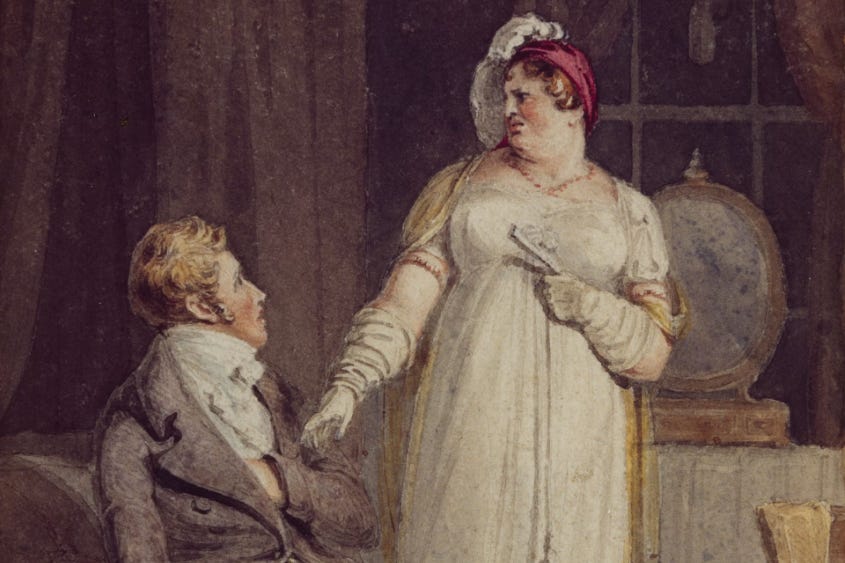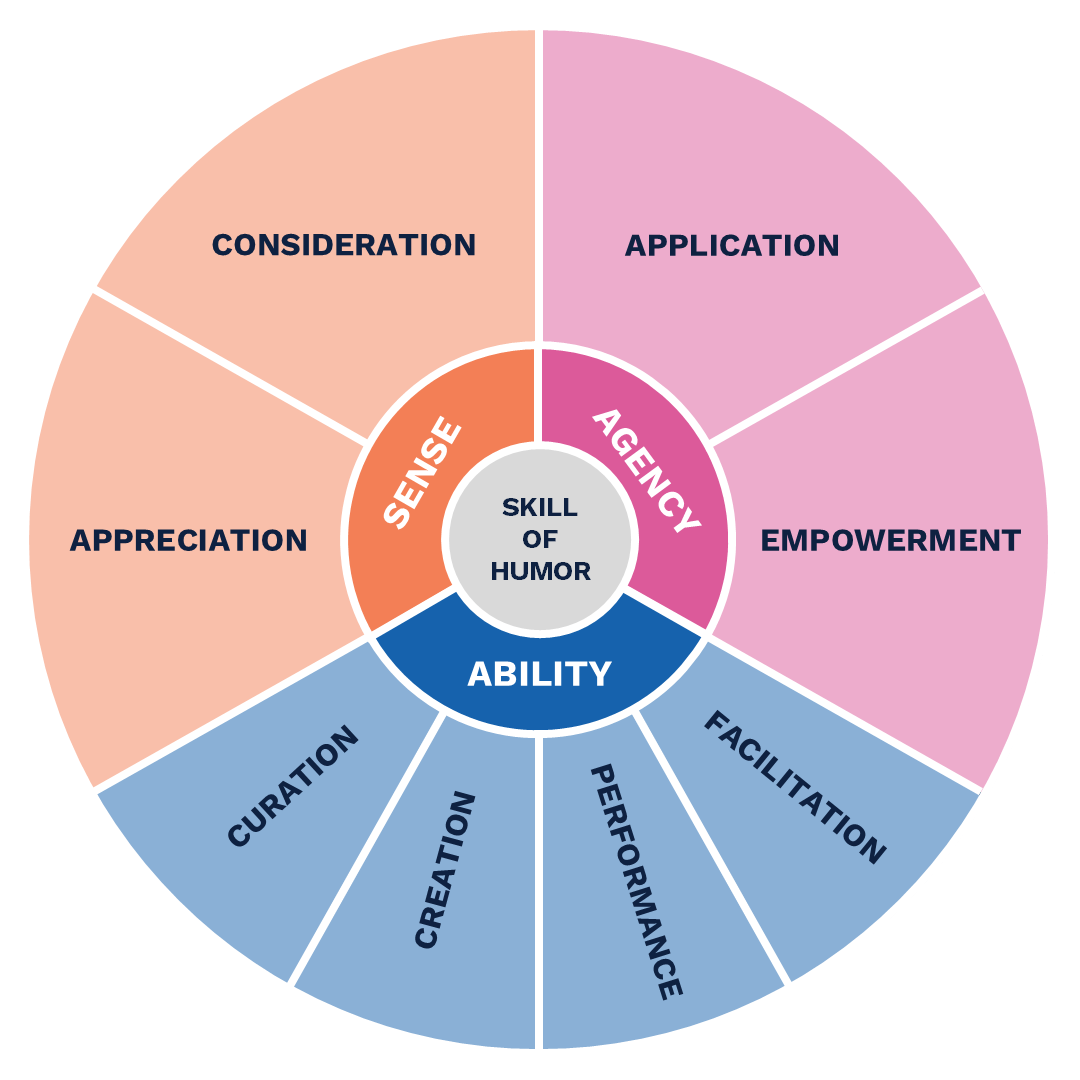Why Humor Is a Skill Worth Learning
And why learning it now matters more than ever (especially in the age of AI).
If you’ve ever worked with someone who had a great sense of humor, you probably remember it.
They made long meetings feel shorter, tough conversations easier, and the workplace, dare I say, actually enjoyable.
You’ve probably also worked with plenty of people who were the exact opposite. Their personalities were forgettable, but the boredom and dread they brought were not.
In today’s world, humor isn’t just a nice bonus, it’s a competitive advantage.
The Case for Taking Humor Seriously
Research shows that humor has measurable effects on how we work and lead. I’ve shared a few times the 30+ benefits of using humor in the workplace. A few relevant highlights:
Humor reduces stress. “People with a sense of humor report less stress and anxiety than those with a low sense of humor, despite experiencing the same number of problems at work.”
Humor builds credibility. “Humor users are seen as more credible and as more competent.”
Humor increases happiness. “Humor was one of the healthiest adaptations to being happy in life.”
In other words, humor puts the fun in functional… Although by that logic, it also puts the fun in disfunctional, funky, and Funyuns.
And yet, most of us are never taught how to use it, especially not as a professional skill.
We spend years learning how to code, write, manage, or lead, but almost no time learning how to communicate with humor, one of the most powerful tools for connection and influence.
Why This Matters Now
In a world where artificial intelligence is starting to tell jokes, humor has become even more important as a human skill.
A recent article highlights that while AI may be able to generate jokes that make people laugh (with a tremendous amount of trial and error), it often misses the emotional nuance, timing, and social awareness that make humor humorous.
There’s a difference between pure joke writing and real levity. AI can simulate structure, but it doesn’t know what type of humor will land with Janice in HR, Frank in Sales, or you alone by yourself after a long day of work when you really could use a laugh to shake off the stress of the day.
Humor is about meaning, timing, and connection. It’s how humans play with ideas, ease tension, and find shared understanding.
And that’s exactly why it matters more now than ever.
When Humor Goes Wrong
Of course, not all humor helps. The same thing that makes it powerful also makes it risky.
We’ve all seen the attempted joke that wasn’t funny, the meeting icebreaker that froze the room, or the well-intentioned quip that was way more cringe than clever.
Research backs this up too. When humor is done poorly or inappropriately, it can backfire, lowering perceived intelligence, damaging trust, or even alienating the people you’re trying to connect with.
That doesn’t mean you should avoid humor completely, it just underscores how important it is to learn how to use it correctly.
Because there’s a difference between the humor you use at work and the humor you share with friends or the kind you see on late-night TV.
Workplace humor needs a different kind of awareness, a sense of timing, audience, and intent.
Humor Isn’t an Innate Talent.
Humor isn’t just something you have, it’s something you can learn. It’s a skill.
And like any skill, it gets stronger with practice, feedback, and the right framework.
Over the past few years, I’ve been developing a research-backed model that breaks humor into eight core competencies, from appreciating humor to creating it, performing it, facilitating it, and applying it to real-world challenges.
It’s a way to make humor teachable, learnable, and practical.
Learn the Skill of Humor
Next week, I’ll be opening registration for a small, hands-on beta training called The Skill of Humor — a 4-hour live virtual session on Saturday, November 8.
We’ll explore the science and structure behind effective workplace humor and help you start building your own humor muscle.
If you’ve ever wished work could feel a little more human and a lot more fun, this is for you.
→ Join the waitlist to get first access when registration opens next week:
I’m keeping this beta intentionally small so I can actually see faces, learn names, and make it interactive. Once the group fills, registration will close.
Humor isn’t about cracking jokes or cracking people up. It’s about cracking open connections while also keeping you from cracking under stress.
And when you learn to do it right, it doesn’t just make people laugh. It transforms the world around you into one that’s a little bit lighter, more fun, and happier.
–Andrew
PS. Over the next few weeks, I’ll be diving deeper into the skill of humor and the eight core competencies. Now’s a good time to share this newsletter with anyone you think may want to bring a bit more levity into the world :).







As a stand-up comic and humorist, I concur.